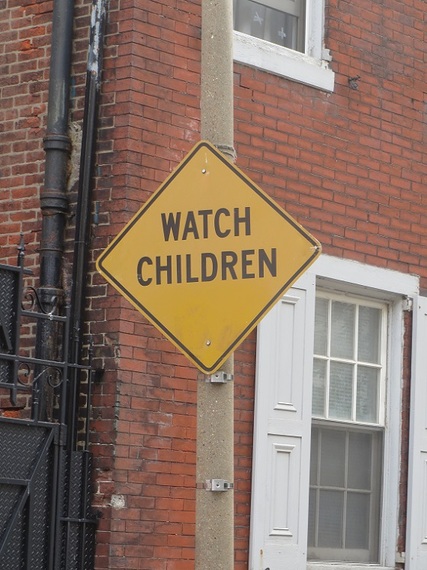Trust is a weird thing. "It has to be deserved," I once said to a person I just met and got him really upset. He believed that trust was to be given upfront, and not giving it was equal to stating, "I don't trust you." Fast forward, I look at the person I was, sitting at that dinner table. I realize that I was not ready to understand that strange perspective. It took me a while to notice how much I valued it when someone trusted me upfront, without even knowing me. It made me feel honored with what seemed a gift, and it triggered in me the spontaneous reaction to be at my best to deserve that present. One day I realized the inconsistency -- between my position of not trusting upfront, and the wonderful feeling of being trusted upfront myself by others. So I decided to stay with what felt better -- and to do it myself.
Now that was not an easy habit to develop. I grew up in a culture that values friendship so highly, that it takes priority above the law or the rules. For instance, if you are a cop and a neighbor drives through a red light, you may stop him/her but giving a ticket would be declaring the end of the friendship. And it would be judged by all the friends of your neighbor as a bad act. Not a violation of the law -- a violation of the friendship and loyalty. Now one unwanted consequence of this "friendship loyalty principle" is that people never trust strangers -- because the assumption is that they may be acting for their own or their friends' interest, hidden motives that are not always "correct." And since the assumption is shared by all in the culture, it is no longer seen as an assumption, but as a real fact. That is just what people do.
Living in a different country helped me, and living with a person who only sees the good in everyone, upfront and all the time, helped me to work through my challenge.
One day I thought: What if I looked at strangers as members of my family? With the background I just described, this seemed like an appropriate strategy. You may be able to think of some people who are odd, different, incomprehensible, but yet (on your good days) you take them as they are, because they are your family. I began observing the tone of my voice when I greeted a stranger, in any of those daily transactions. Robot-like. Automated phrase said thoughtless. Asking "How're-ya-doing?" without really wanting an answer. Interacting without being able to describe the hairstyle, color or clothing of the person I just dealt with. What about imagining she was my dear aunt, or he was my nephew I hadn't seen for ages? Quite a different tone came out. (Try it.)
To begin with, greeting a person as someone you like and know well, changes your own chemistry -- and brings a very different energy into the interaction. Then, the other person, who perceives this energy -- without consciously knowing what is going on - tends to react with surprise and then "tunes in" into the frequency, so to say. All this is done automatically, without thinking. Neuroscientists have been researching this phenomenon and its causes, and have identified what is called the "mirror neurons," neurons that fire both when an animal or person acts and when observing the same action performed by another. Thus, the neuron "mirrors" the behavior of the other, as though the observer were himself acting. Of course the same can happen when someone presents himself as uncaring, aggressive or sad, but how much better it is to use it to multiply positive feelings around us. So we have an opportunity to notice our meaningless, automatic transactions, and change them into battery-charging moments of connection. Good energy flowing back and forth.
Trusting strangers becomes then more of a self-fulfilling prophecy, where the others -- like ourselves -- tend to live up to the appreciation granted. When I address a stranger in that way, I am trusting he or she won't harm me, and won't put his self-interest above all. And I am making the same tacit statement. For some reasons, this seems to work, and makes the involved people feel safe, accepted, honored. This is how small children address the world -- trusting that we won't harm them, and that we will care for them. We all were like that. This is one of the things that makes interactions with small children so fascinating.
So from caring for our family, to looking at strangers as part of our family. How far can we go, where would the 'others' begin then? From my home, to my block, to my city, state, country, continent... the world, all that is?

